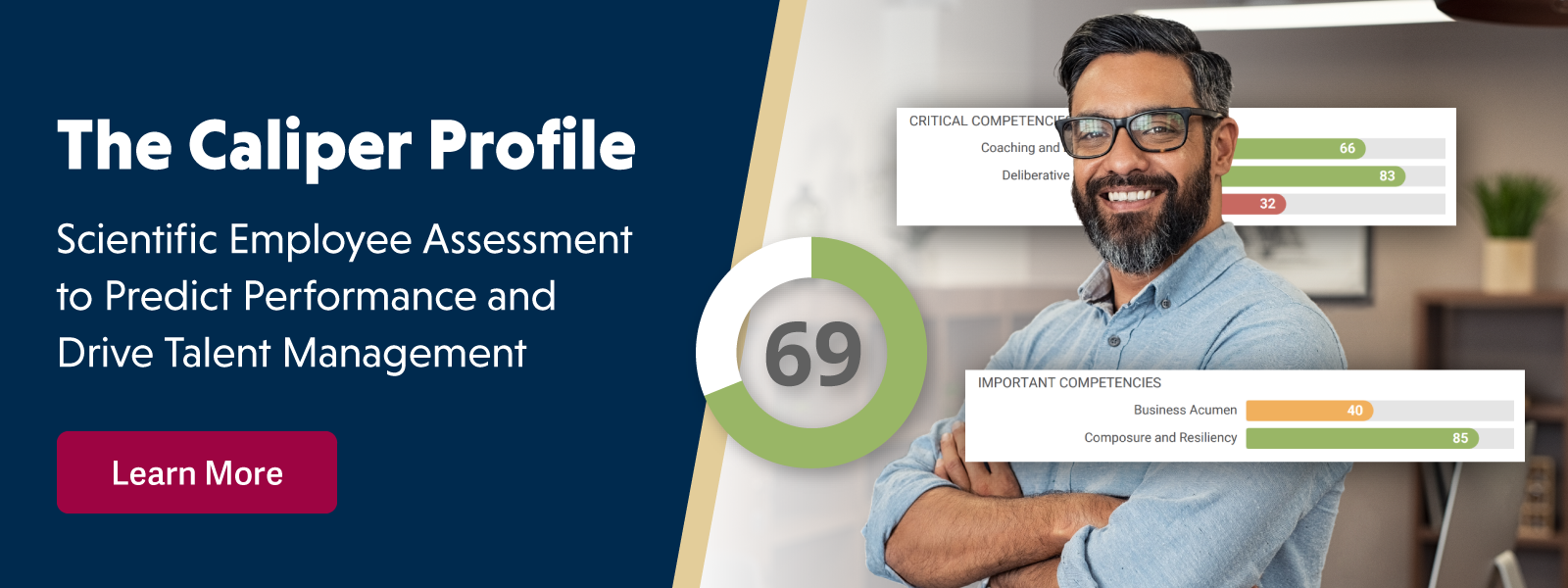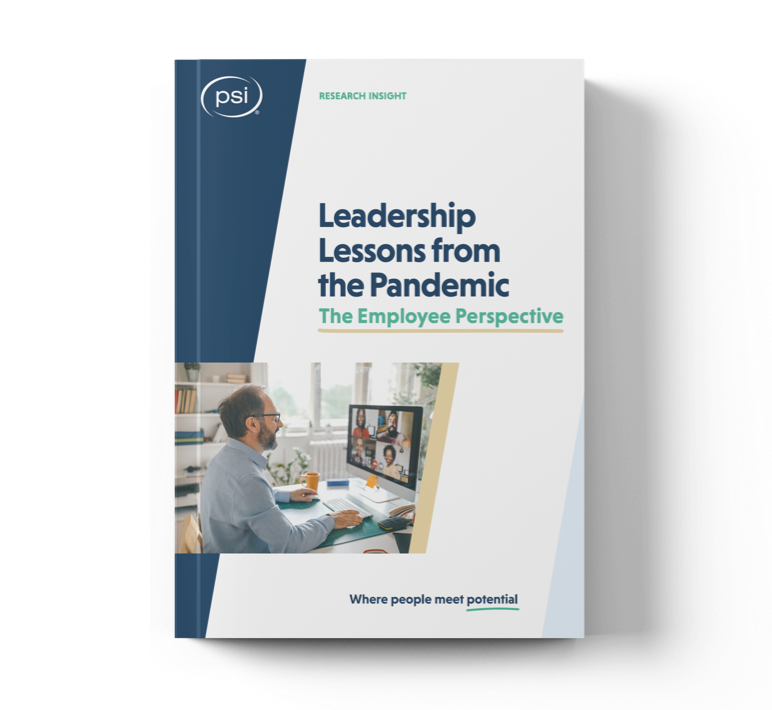Did you know that the average sales employee turnover rate is nearly triple the average employee rate? Turnover in sales makes an impact on the entire organization, and it’s expensive. Sales employees are some of the most vital contributors to a company’s growth and bottom line, and hiring for sales effectiveness is critical. Yet, leaders continue to find it challenging to hire and develop the right people for these roles, and then keep them there.
Struggling to hire for sales? @CaliperCorp uses validated job models to match candidates to sales-specific roles and is the trusted choice for sales selection. Click To TweetHiring for Sales
How do you determine if a candidate will be an effective salesperson? While sales effectiveness is not a generalized trait, there are qualities and habits that are greater indicators of success in a sales role. When hiring for sales, you should look for these six traits or the potential to cultivate these characteristics in candidates:
- Hyper-focus: Salespeople have many tasks and clients to focus on at once. In order to be successful, they need to be able to prioritize and focus on what is most important.
- Active listening: The best salespeople listen to their customers and ask the right questions.
- Networking Master: Building relationships is a key element for success in sales. Effective salespeople are able to build trust which improves customer loyalty.
- Work smarter, not harder: Successful salespeople follow a consistent process and balance their tasks. They don’t reinvent the wheel when there is already an efficient process in place.
- Adaptability: When faced with an unforeseen challenge or obstacle, effective salespeople are able to quickly adapt their approach.
- Be prepared: Exceptional salespeople know their product better than anyone. They do their research and are able to anticipate the questions their customers might have.
It’s also crucial to consider sales effectiveness as a function of the tasks themselves, although these tasks will differ across industry and organization. In order to hire the right candidates, start by defining the relevant tasks for your strategy, and reflect those tasks in hiring criteria and a disciplined hiring process. A combination of structured interviews, assessments, and background and reference checks allows hiring managers to observe and predict the candidate’s job behaviors which can yield the best results when hiring for sales.
Talent assessments have become more available and intuitive, which is great news for sales leaders. The Caliper Profile pre-employment assessment, for example, was built to help predict a job candidate’s potential success in the role. The assessment not only measures specific behaviors and competencies, but also uses the data and insights to match candidates to scientifically-validated job models for sales professions. The Caliper Profile also goes a step further to provide hiring managers with interview questions, coaching recommendations, and training for skills gaps, meaning that it can be used at both the hiring and developing stages of employment.
Set Them up for Success
Did you know that less than 45% of companies have a formal sales training process? Given the lack of training and development structure in sales, it’s easy to see why the turnover rate is so high. Companies tend to invest more heavily in recruiting and hiring activities than on the processes and programs that focus on developing employees and keeping them engaged. However, investing in training and development will likely improve retention and increase your company’s margin.
Professional Development and Productivity
Playbooks are a great tool for training employees and creating consistent sales processes across your organization. A playbook ideally contains all the content necessary for your sales reps to succeed, including buyer personas, call scripts, negotiation tactics, and proposal guidelines. Creating a playbook can be very time-consuming and should involve multiple stakeholders throughout your company. However, it is time-saving in the long-run as it allows new employees to be trained more quickly. Additionally, a playbook frees up time for selling. Research by the CMO Council shows that sales reps spend 40% of their time searching for or creating content, and a playbook can help centralize the resources they need.
Professional development is integral to individual success in sales and overall retention. When career advancement paths are unclear, sales reps will start to question their place in the company. This is where sales leaders can make an impact by investing in the professional development of their team with a coaching mindset. Effective coaching includes building a plan for your employees, establishing expectations, challenging your staff, and helping them find solutions. By implementing these practices, employees are more likely to become engaged with their careers and increase their overall performance.
Sales productivity is the #1 challenge for 65% of B2B organizations and directly impacts a company’s ability to grow and improve its bottom line. Hiring and developing for sales can be difficult, but the right investment in these processes will help you find the most qualified sales candidates and keep them invested in your organization.
Caliper can make implementing these processes as simple and seamless as possible. Want to see how our products can help you increase your success in sales? Contact us and we can get you on the right path to hiring and developing more sales effective employees.


